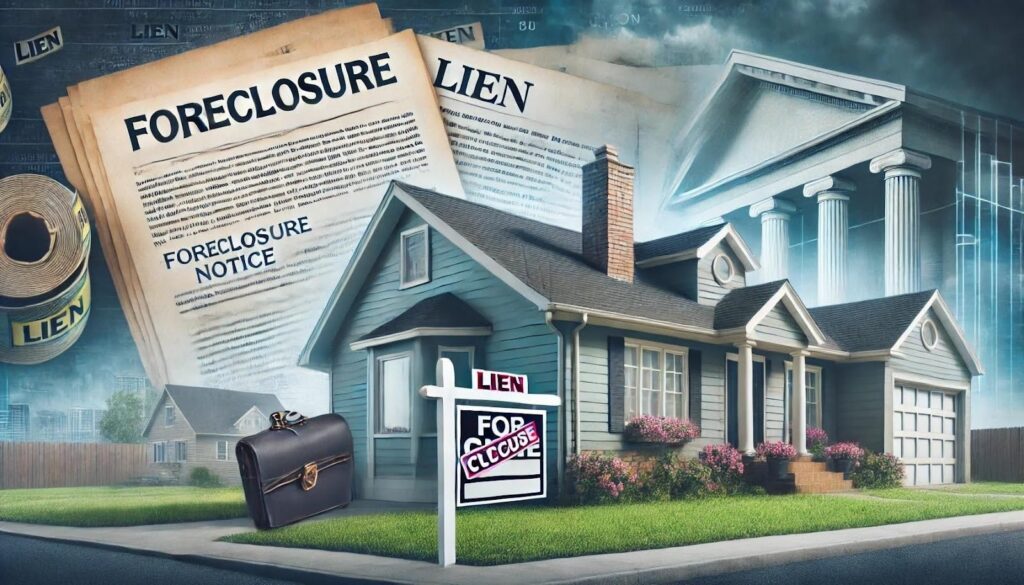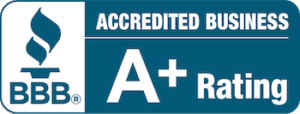A lien refers to a legal claim that a creditor places on a particular asset until all his or her debts are settled. In case you lag in your mortgage payments, your mortgage lender can take judgment and initiate the process of foreclosure regardless of the presence of some other liens on the property. Total avoidance of foreclosure can be deterred but liens attached complicates its process. So, understanding how these two come together is an important tool for risk managers.
When a bank is foreclosing on a property, it is because they want to recover any outstanding debt in relation to a mortgage. However, if there exist any other prior liens made on this property, there may also be repercussions. Following this line of thought, some liens will have to be taken care of either while they occur or after foreclosure has been completed. If a lien is taken during foreclosure, then its type will determine how it should be treated.
In some instances however, after the sale of foreclosed property, there might not be adequate funds that can be generated to satisfy all the existing liens. In such scenarios, unpaid debt to the lien holders remains unpaid or potentially underpaid. Therefore, the nature of different liens relevant to this process and what happens after that should never be ignored.
Understanding Liens and Their Impact on Foreclosure

Liens are legal claims on a house and they can have a big effect on the foreclosure process. When there is a lien against your property, it means that one of the people who you owe money to has a legal right to a certain part of your house’s worth. This makes things harder if you are threatened with foreclosure because in order to sell the building or whatever else in such an agreement, this lien must be cleared first.
The severity of the impact of a lien on the foreclosure will depend on its type and priority. For example, some types of liens such as property tax liens have more importance than others and therefore these should always come first before anything else is done about them including repaying other debts like those owed for mortgages with proceeds acquired from selling off homes involved in this process.
Homeowners should know if there are any encumbrances against the title search on their premises because they might bring about additional legal issues and financial issues when an individual is being threatened by this form of procedure. Understanding liens and their relation to insolvency is good for protecting your property from being taken away.
Types of Liens That Can Affect Property Ownership
Just like crimes, different types of loans emerge from various beginnings and thereby influence your possession differently.
You might notice these five common lines in the life of a home-owner:
- Mortgage liens: These are essentially mortgage agreements which enable a lender to seize your house when you don’t pay back.
- Tax Liens: Are put up by the government in case your property taxes are not paid and their priority is second to none when it comes to seizure.
- Mechanic’s Liens: Are enforced on buildings by suppliers and builders who have not been compensated with the hope of recovering their money spent during construction or maintenance repairs that could have been spent elsewhere.
- A judgment lien refers to a lien assessed upon the property as a result of the ruling of court that permits creditors to use your house as collateral against debt owed.
- HOA Liens: Dues that are not paid by homeowners’ associations on time can also cause foreclosure.
Each of these has specific implications on real property and ownership especially in case of foreclosure hence the essence to know these disparities which contribute to sound property management.
The Foreclosure Process
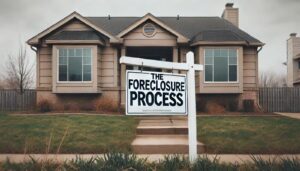
The foreclosure process commences when the homeowner fails to pay its mortgages. Default notice is the first step of foreclosure action by the lender once missed mortgage payments are prolonged. This alerts the proprietor on catching up with payment prior to losing their asset.
If the recipient does not rectify the default, the institution could proceed with any foreclosure processes and it may include having an open sale of that property. Alongside this, any encumbrances should also be cleared up for purposes of getting rid off such before using the sales amount towards catering from the first lien, first mortgage, and all other secondary liens.
For people who own houses ; learning related actions during this course will help them get ready. When facing foreclosure risks, it’s crucial to act quickly because houses can be saved when intervened earlier.
Mortgage Payments
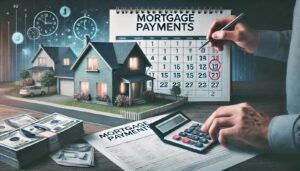
The essential part of owning a home is regular mortgage payments. If a default occurs, it might initiate foreclosure proceedings. Although many mortgage providers allow a grace period for defaulted installments, continued missing of dues may lead them into initiating foreclosure procedures.
Regular mortgage payments make sure that you keep your home safe and clear of lien complications. If you happen to default on your payments, the creditor may foreclose even though there are other encumbrances attached to the property such as taxes or judgment liens (which usually come after default). Therefore, staying up-to-date on payments is crucial for maintaining both property and financial integrity.
Thus, early contact with your lender is important if you are finding it hard to pay the bills at the end of every month. Your mortgage holder or creditors could offer alternatives such as loan modifications or payment schedules, which can help you keep going. However, staying with your mortgage will stop you from losing your home through foreclosure.
Property Tax Liens
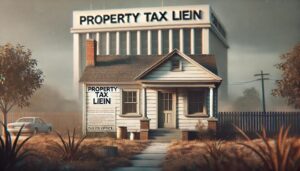
Government imposes property tax liens when there are unpaid taxes on a property. These kinds of liens are considered very potent because they rank ahead of most types of claims against the same property owner, such as a mortgage. When not resolved, a property tax lien may lead to foreclosure regardless of whether there exists a mortgage on it or not.
Property tax lien is among some liens which, unlike others, can be used by the government directly to get back money owed through selling off such properties during sales that attract tax obligations upon purchasing them and typically have purchasers acquire these subjects that already had previous loans secured against them. They are a matter of urgency, it is very important that they are settled quickly so that you do not lose your house.
For preventing these types of liens, paying your property taxes in due course is necessary. But in case difficulty arises, local and county governments may offer help such as payment plans which allow one to settle their debts on installment basis. This should be addressed quickly in order to avert foreclosure due to tax dues.
How Liens Are Handled in a Foreclosure Sale

Foreclosure sales pay off debts in order of importance. Primary mortgage debts are cleared off first and any proceeds left are used to pay off other debts with interest. Taxes and other high priority debts have to be paid first before any other lower ones like mechanics’ or second mortgages.
Lower priority lien holders may not get all that they are due if the sale does not bring in enough money to cover all the lines. Also, after the sale, some states allow these holders to pursue payments for construction liens for certain periods.
Homeowners as well as creditors should understand how liens are treated during foreclosure proceedings because it determines how much they get from the proceeds and thus influences other decisions around foreclosure or debt settlement.
Lien Priority and Its Effect on Foreclosure
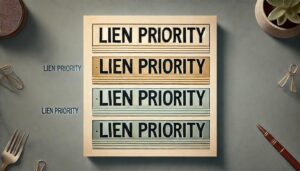
The foreclosure process is significantly influenced by lien priority. It defines which creditors are to be paid off first if an individual’s property is foreclosed on. Subsequently, other debts or encumbrances such as the mortgage and then any other junior liens follow in that order before the senior liens get sorted out.
This hierarchy has the potential to significantly affect how much each lienholder will receive from their share of the proceeds when it finally comes down to distribution. In case there is not enough money available for distribution among all lienholders, junior lienholders may end up not receiving any money whatsoever. For homeowners, having a good understanding of lien priority is necessary as it will determine their fate in foreclosure and subsequent obligations if any.
Under some circumstances though not common, junior lien holders may engage the borrower or creditor so they are not left out when a property is sold through an auction process in case there is an existing senior loan or mortgage on such property . Familiarity with the concept state law of lien priority can be a useful guide for anyone trying to keep up with their financial commitments and safeguard their properties.
Avoiding Foreclosure and Resolving Lien Issues

Preventing foreclosure often requires that you deal with both mortgage payments as well as unpaid mortgages. Homeowners should regularly examine their financial condition and pay off any existing mortgages so as not to complicate foreclosures. For example, this may involve settling a claim or creditor, maybe through refinancing the property.
Different strategies can be employed to evade foreclosure by homeowners, including making a budget to cater for payments every month, negotiating with the lender for loan modifications if necessary, or even selling their houses in order to raise more cash for the mortgage payments among others. Addressing lien problems early enough can prevent them from being a major stumbling block during foreclosure time.
When it comes to foreclosures and property liens, it can be helpful to seek advice from professionals. This may be an attorney or a consultant in matters of financial affairs who will advise you on steps that would safeguard your house as well as future finance. Proactive measures can go a long way in avoiding foreclosure.
Navigating the Complexities of Foreclosure and Liens
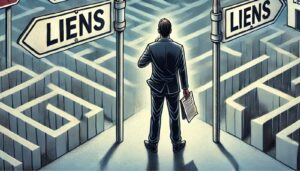
To tackle real estate challenges like foreclosure and liens, people must have a perfect understanding regarding both law and finance. Foreclosure process, kinds of liens and how they interface is what homeowners need to comprehend. This will assist you when you want to have an informed decision that protects your property.
It is advisable to ask for professional assistance due to the complexity involved in it .The help of an attorney, financial advisor or housing counselor would provide you with useful ideas and tactics that suit your situation. In that case they will show you the options available for avoiding foreclosure through examples of loan modifications and communicating with lien holders in other words.
The bottom line is being an active and aware person can only survive foreclosure threats. To this end, gaining insight into details of lien and its impact when it comes to foreclosure can enable one to secure his/her house and personal finance from any danger.
Conclusion
Faced with the risk of defaults and encumbrances can leave you in a complicated position, but understanding them operating together will help you manage more effectively even though it’s tough. By identifying the types of liens, their hierarchy, and how they affect the mortgage foreclosure due process, it’s possible to make informed choices on protecting one’s property at all times. Very early addressing of such matters plus looking for guidance from specialists can really help in terms of securing your residence and keeping you financially sound.
If you want to avoid foreclosures, take proactive measures such as maintaining your mortgage payments on time as well as dealing with any pending liens as soon as they arise. Nevertheless don’t forget that sometimes quick actions can make a lot of difference in just preventing something very dangerous; therefore, never hesitate to ask for assistance when such happens.

